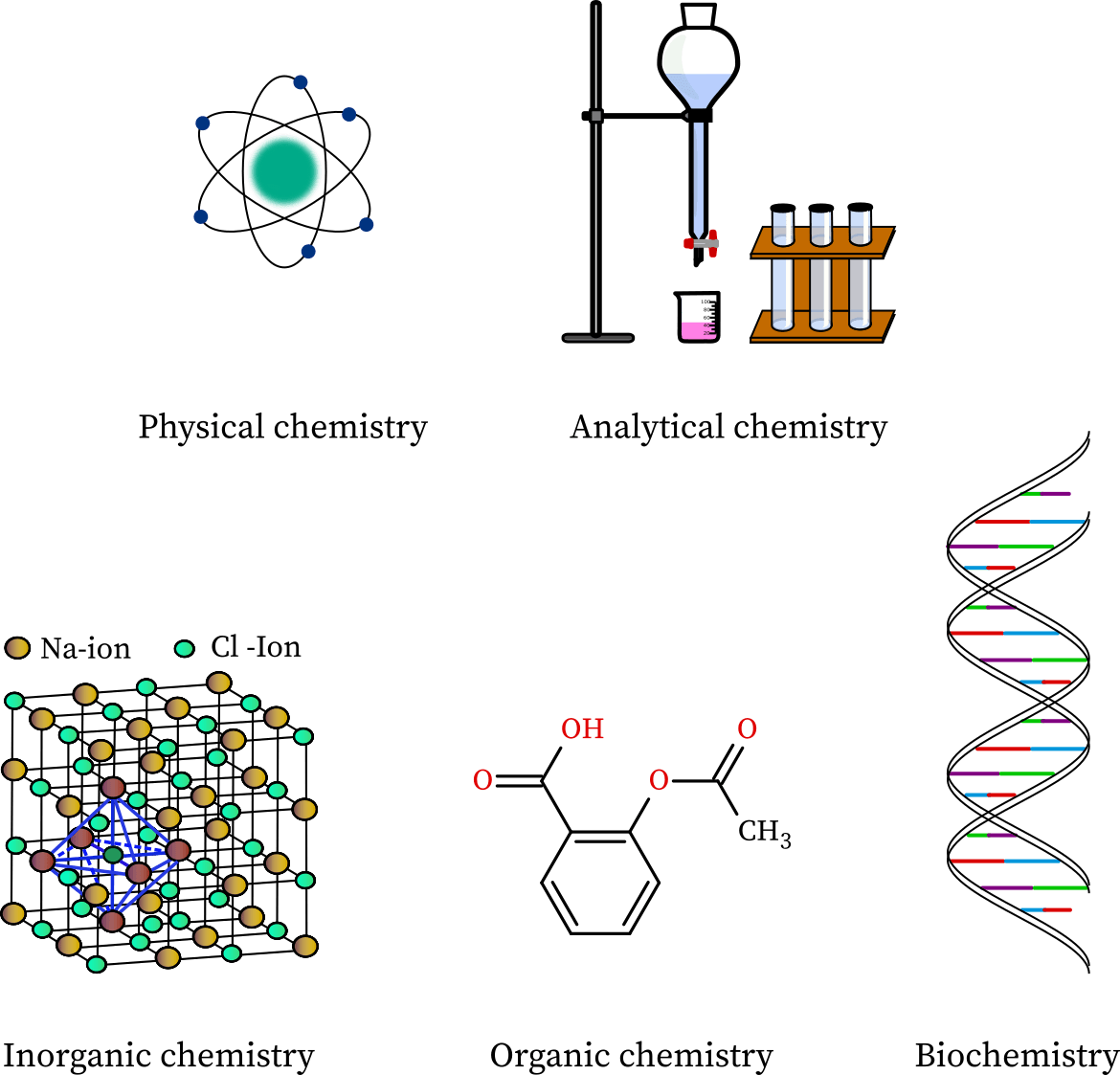Branches of Chemistry Study Guide
Chemistry studies the properties, content, and structure of substances (specified as elements and compounds), as well as the changes they go through and the energy emitted or absorbed during these processes. The great challenge in chemistry is to develop a consistent explanation for the complex behavior of materials and how interactions between different substances can lead to the formation of new substances and the breakdown of old ones.
Today, chemistry is a vast subject with numerous subfields. There are five different fields of chemistry.

PHYSICAL CHEMISTRY
As the name signifies, physical chemistry and some branches of physics have a lot in common. Apart from studying the physical properties of atoms and molecules, physical chemists study the mechanism of chemical reactions, create propositions about these properties, and learn about the materials’ potential applications. Some of the areas of study are statistical mechanics, chemical kinetics, thermochemistry, electrochemistry, surface chemistry, etc.
ANALYTICAL CHEMISTRY
It is one of the subfields of chemistry that emphasizes qualitative and quantitative methods to analyze properties. It is widely used in the chemical industry to retain the quality of the final finished product. The qualitative method entails identifying the chemical constituents (atoms, molecules, ions, and so on) in the substances. The quantitative method is used to calculate the concentration of an analyte in a particular sample.
INORGANIC CHEMISTRY
It is a subfield of chemistry concerned with the study of inorganic compounds (compounds that do not contain carbon-hydrogen bonds). Paint, pigment, coating, fertilizer, surfactant, disinfectant, and solar power industries all use inorganic chemicals. Some of the areas of chemistry are coordination chemistry, bioinorganic chemistry, organometallic chemistry, solid state chemistry, etc.
ORGANIC CHEMISTRY
The field of chemistry involves the study of organic compounds (compounds that contain carbon-hydrogen bonds). Besides carbon and hydrogen, nitrogen, oxygen, phosphorus, sulfur, and halogens like chlorine, fluorine, and iodine are commonly found in organic molecules. Major industrial sectors dealing with organic chemistry include petroleum refining, pulp, and paper, rubber and plastic products, primary metals, etc.
BIOCHEMISTRY
A new field compared to the other branches of chemistry, biochemistry is a branch of science that focuses on the investigation of chemical reactions occurring within biological systems. Experts in this field are known as biochemists. They concentrate on the application of chemistry to better comprehend biological systems such as respiration, cellular metabolism, respiration, etc. important areas of study include molecular biochemistry, immunochemistry, agricultural biochemistry, etc.
Apart from these five branches of chemistry, other areas include astrochemistry, geochemistry, food chemistry, nuclear chemistry, petrochemistry, and many more.
FAQs
1. What are the five major areas of chemistry?
Five major fields of chemistry are
- Physical Chemistry
- Analytical Chemistry
- Organic Chemistry
- Inorganic Chemistry
- Biochemistry
2. What are the two classical methods of analytical chemistry?
The two classical methods used in analytical chemistry are the qualitative methods and the quantitative methods.
3. What is catenation?
The property of elements like carbon, silicon, etc., to form chemical linkage into a chain of atoms between the same elements is called catenation.
4. How are chemistry and biology related to each other?
The subject of biochemistry, which investigates the elements in living creatures and how they change within an organism, brings these two branches of science together.
We hope you enjoyed studying this lesson and learned something cool about Different Branches of Chemistry! Join our Discord community to get any questions you may have answered and to engage with other students just like you! Don’t forget to download our App to experience our fun VR classrooms – we promise it makes studying much more fun! 😎
]]>